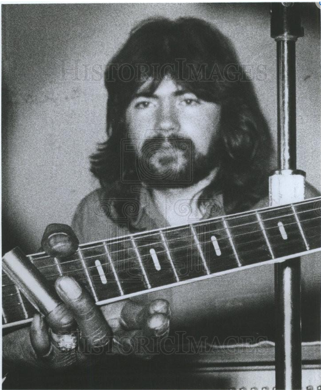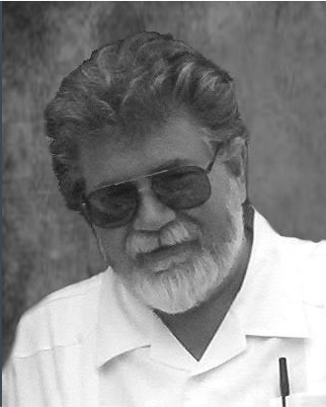Bob Riedy - A Chicago Blues Pioneer Who Championed The Blues Northward Out Of The City’s Ghettos
The Wise Fools Pub, B.L.U.E.S., Kingston Mines, Lilly’s, The Peanut Barrel, Blues Etcetera, The Attic, Biddy Mulligan’s, and so forth. Chicago’s north side blues scene brought blues out of the south and west sides and gave it a new awakening amongst a younger Caucasian crowd who absolutely clamored for the music that gave new meaning to both their very definition of great music and how to revel in it not only on the weekends, but through the week, as well. The north side blues trail also provided many blues musicians a steadier stream of performing opportunities, with many of the clubs offering a dizzying and almost unbelievable array of weekly top-tier blues talent. I still have many of the north side blues site lineup cards in my collection, and it was not uncommon for a venue like B.L.U.E.S., in its heyday, to feature Jimmy Rogers, Sunnyland Slim, Eddie Taylor, Mighty Joe Young, Little Willie Anderson, Walter Horton, Carey Bell, Eddy Clearwater, Johnny Littlejohn, Jimmy Walker and Erwin Helfer, well, you get the picture, on a weekly and monthly basis. Today it sounds like blues heaven, and it was and, to a certain degree, still is with Kingston Mines presenting a rotating lineup of top-shelf blues artists at their N. Halsted St. location, and a little further south in Chicago’s River North neighborhood, with Blue Chicago on N. Clark St. serving up blues five nights a week, and of course, Buddy Guy’s Legends providing an array of talent in the club’s South Loop location. One can also still hear the blues at sites like the Smoke Daddy bar and restaurant on W. Division St., too, and at other venues such as the recently relaunched Lee’s Unleaded Blues on the south side. But at one time, the north side circuit was the place to be for the best revolving variety of high echelon blues genius.
It’s quite possible, however, that Chicago’s north side blues scene would’ve never taken off if not for the high energy of one man in particular whose efforts kept many of the city’s blues titans continuing to hone their crafts, getting them recorded, and promoting and finding them gigs. His band regularly backed many of these artists, many exclusively for a while, and I feel that his merits have not been celebrated enough. So, a short overview of the blues championing efforts of Bob Riedy are in order.
Hailing from the rustic countryside of Wisconsin where he was born in early February, 1946 (one of ten children in the Riedy family), in Casco specifically, a very small village in Kewaunee County, in the state’s far eastern region roughly 24 miles east of Green Bay. Here, Riedy was raised by his family who owned and worked a dairy operation. For all intents and purposes, the area provided a very pastoral lifestyle.
Riedy did not initially attend the public high school in Casco, rather, he was a student at The Sacred Heart Seminary in Hales Corners, Wisconsin, which was roughly 130 miles south of Casco. It was while at The Sacred Heart Seminary that Riedy first became interested in music and, though it is somewhat hazy as to what his first instrument was or what steered him toward music as an eventual lifelong passion, keyboards do indeed appear to have been his lifelong interest. While at The Sacred Heart Seminary, he and a few of his classmates began a band named The Infinitors.
However, Riedy transferred to Casco High School in his later high school years where music continued to remain very important to him, though he is noted to having also been something of a very noteworthy athlete. What is known is that at some point he formed another band, this one named The Corals and, once he graduated high school, he and the band frequently played the Green Bay area musical venues. This period would have begun in the early 1960s; 1964, perhaps.
Riedy was all-in on music and, though the names of the bands and his bandmates changed, he embraced the traveling life of a rock-n-roll musician. That is until the late 1960s when he made a dramatic life decision to move to Chicago, one that forever altered his musical focus from rock-n-roll to the blues, a music he ended-up doing so much great work for with his tireless, fervent efforts.
In Chicago, Riedy fell under the sway of the great Chicago piano players who were still alive and performing, and also via whose music was readily available on LPs. Specifically, he was enamored with the deep, heavy blues of Muddy Waters Band alum Otis Spann, finding his brand of substantially dark, brooding aesthetics to his liking. Riedy took it upon himself to emulate Spann’s music, literally teaching it to himself by ear and via lessons from the famed Chicago piano giant Erwin Helfer in a rabid initiative to incorporate and frame Spann’s musical narrative into his playing.
Of course, Chicago’s blues scene was still thriving during this period, and Riedy was like a sponge in the clubs, basking in all the blues revelry he could to complete his transition from a rock-n-roll musician to a full-on bluesman.
Earning his stripes on Chicago’s highly competitive blues scene has always been a most difficult chore, and he learned from and sat in with a whos’-who of the Chicago blues elite of the time including Johnny Littlejohn, Eddy Clearwater, Koko Taylor, Carey Bell, and Johnny Young, to name but a few.
A 1972 release on the Blues On Blues label by Johnny Young entitled Plays And Sings The Blues With His Gut-Bucket Mandolin found Riedy on-board with the keyboard duties. The collection featured a dynamic roster of Chicago blues talent backing Young including Louis Myers, Little Mack Simons, Dave Myers, and Fred Below.
Riedy then formed the Bob Riedy Blues Band, releasing 1973’s Lake Michigan Ain’t No River on the Rounder Records imprint, a collection that saw him include a host of Chicago blues luminaries including Sam Lay, Jimmy Rogers, Richard “Hubcap” Robinson, Carey Bell, Johnny Littlejohn, and Johnny Young. Also in 1973, Riedy was found manning the piano for Jimmy Rogers’ Gold Tailed Bird outing for Shelter Records along with Freddie King, Louis Myers, Fred Below, and Dave Myers. And, in 1974, Just Off Halsted was released by Riedy’s band on the Flying Fish label, a collection that included Bell and Robinson, along with a host of others.
By now, Riedy’s band was tirelessly playing and in-demand, wildly satisfying crowds wherever they performed. But what must again be emphasized is how much work Riedy put into bringing the blues to Chicago’s northside. Single-handedly, he showed the powers-that-be of the time up north what a wealth of blues talent could be brought to bear on a nightly basis, and how much money could also be made if north side venues began booking blues. To that end, Riedy established RMR Promotions to promote, publicize, and serve as an agency for the myriad Chicago blues artists from the city’s south and west sides who desperately wanted new outlets to ply their blues trade. In addition to the artists previously mentioned, Riedy worked hard to get work for the likes of Jimmy Dawkins, J.B. Hutto, Magic Slim (himself a blues artist who did not perform for Caucasian fans until 1975), and Lonnie Brooks, again, among many others.
Once Riedy’s efforts began to open doors on Chicago’s north side for blues, the artists mentioned and many more discovered a rabid fan base and eventually an acceptance and admiration they, up until that point, could have hardly imagined form their usual ghetto performing venues.
And continuing at the heart of all this was Riedy and his band, one that was very respectful of whoever they were working with. Riedy held Chicago’s blues masters in the highest of esteem. And in the middle of it all was Riedy with his considerable blues piano skills that he had honed to a very high level.
But as the late 1970s emerged, Riedy was called back home to Wisconsin, as his family needed his assistance. He undertook a role in the financial area of his family’s business, also developing a family/hobby farm of his own, though it must be said that Riedy’s passion remained to be the blues.
After the move back to Wisconsin, Riedy did partake in special shows throughout the years, and this writer remembers him one year in a booth at the Chicago Blues Festival. But his musical endeavors were chiefly confined to his Wisconsin home.
Riedy unfortunately suffered a somewhat lengthy health condition, and passed away in late October, 2020. He left behind a stepson and four granddaughters.
Out of shear will, Riedy forged Chicago’s north side blues scene and the continuing viability of both the blues and its artists at a time when the music and its practitioners most needed it. He certainly did his part to keep the blues alive and thriving. He was a blues pioneer, and not only fans of the music in Chicago but also the word over owe him a debt of gratitude for all that he did for the blues.
In addition to the recordings mentioned above, two others of note that are superb is displaying Riedy’s efforts include, on his Chicago Sound Recordings label:
- Bob Riedy Blues Band Live From Chicago – CSR 2009
- Bob Riedy’s Chicago Blues Shows Of The 70’s Vols. 1 & 2 – CSR 2008

